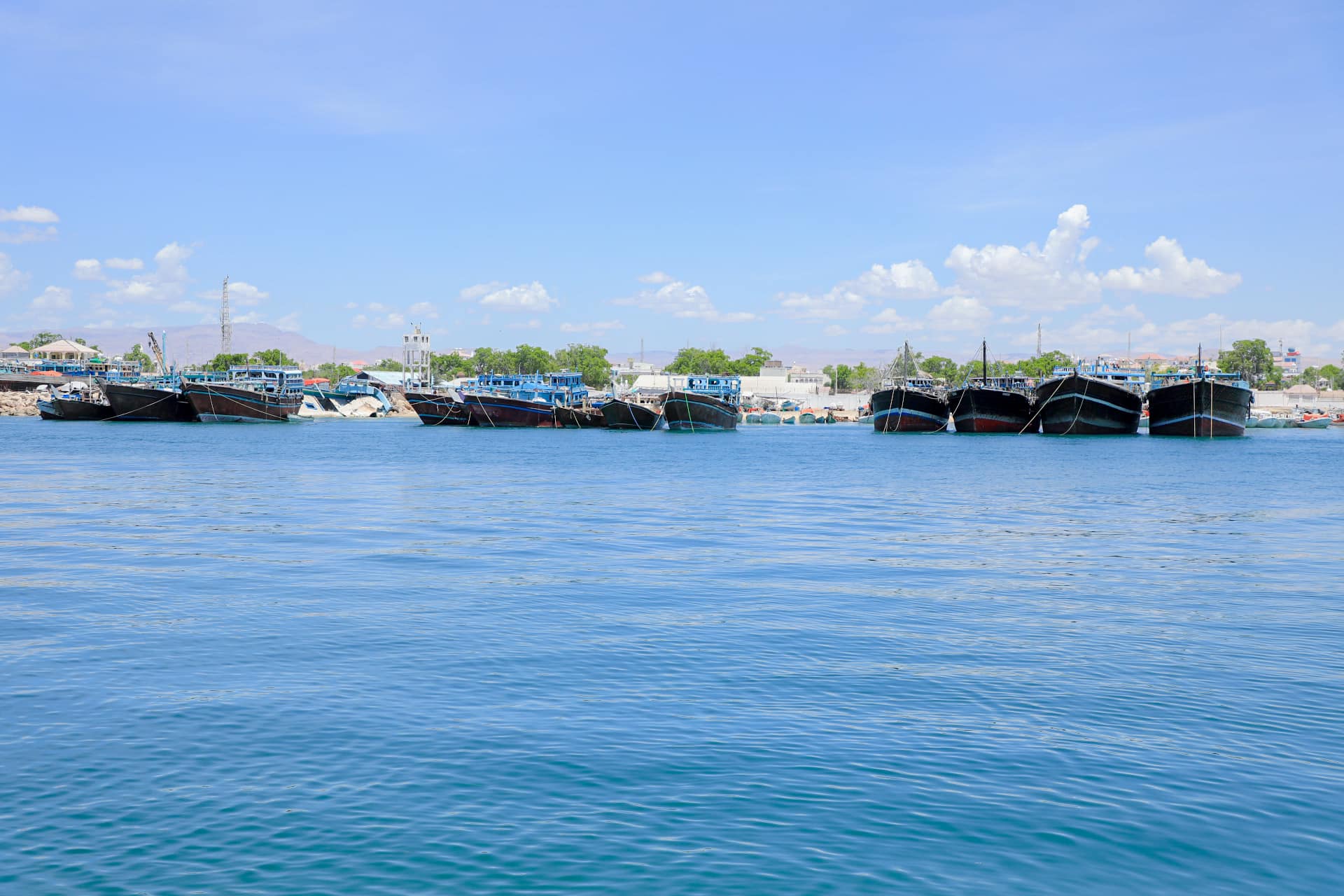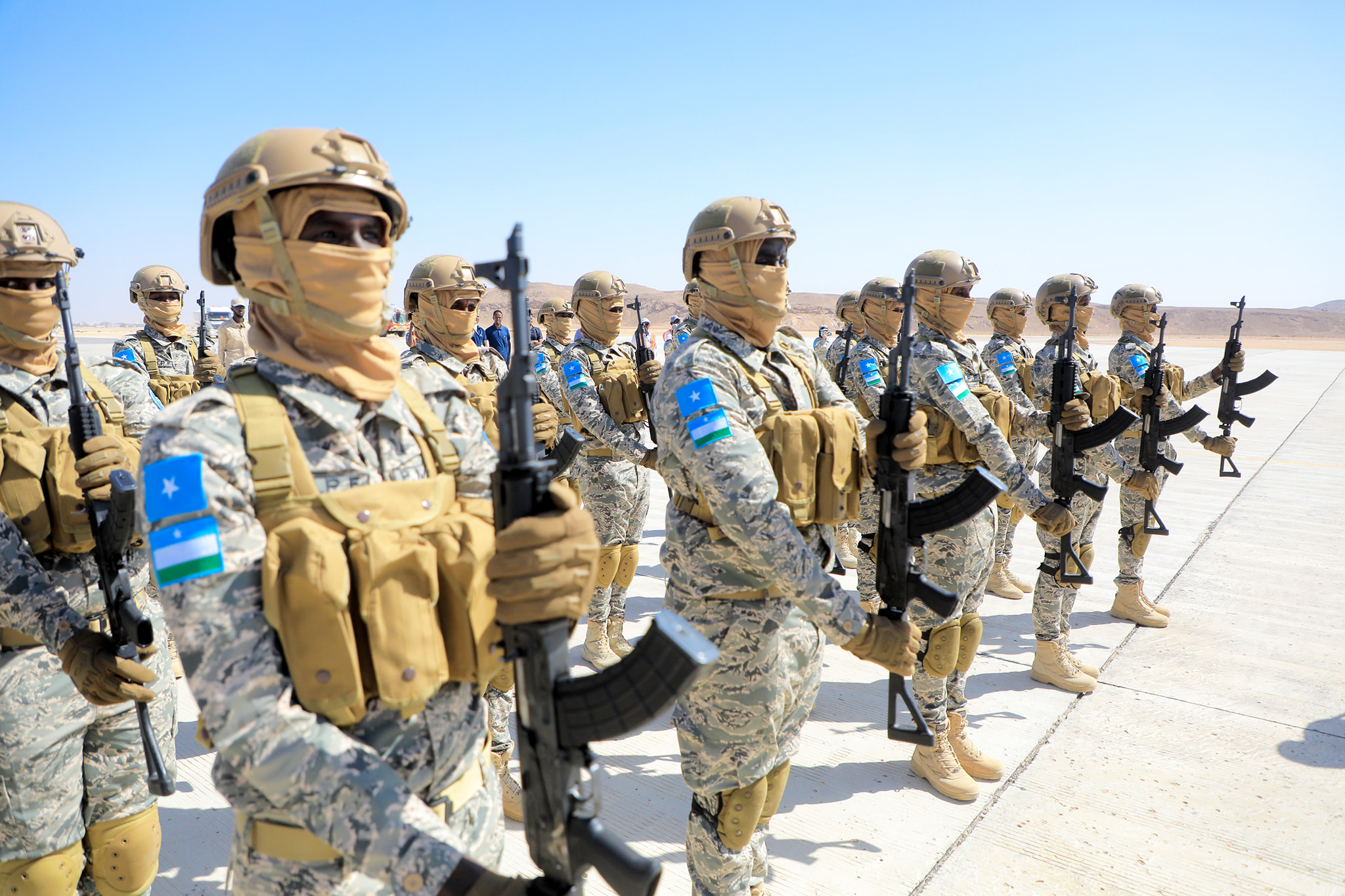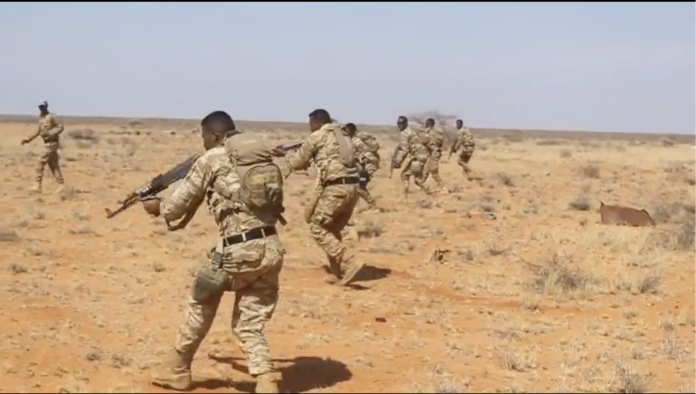GAROWE (KAAB TV) – The Islamic State in Somalia (IS-Somalia) has gained financial strength and clan support, despite its relatively limited operational capacity, according to a new report by the International Crisis Group.
Though smaller in scale compared to its larger jihadist rival, Al-Shabaab, IS-Somalia’s growing revenue sources and influence are raising concerns both locally and internationally.
Based in the mountainous regions of northeastern Puntland’s Bari province, IS-Somalia does not pose an immediate large-scale security threat in Somalia.
However, the group has established itself as a significant part of the broader Islamic State network.
The report highlights that the group has become adept at generating revenue, primarily through extortion, enabling it to send funds to Islamic State affiliates across Africa and even as far as Afghanistan.
“At home, its main challengers – Al-Shabaab and authorities in Puntland – have managed to limit its spread, but they have not succeeded in eliminating it. As the Islamic State’s fortunes in Syria and Iraq have waned, the group has been building up its franchises in Africa,” the report stated.
Leadership and Regional Influence
IS-Somalia is led by Abduqadir Mumin, who is believed to also head Islamic State operations across Africa.
His potential emergence as a global leader within the Islamic State organization suggests that IS-Somalia could play a pivotal role in the global jihadist movement beyond Somalia’s borders.
The group’s rise has been partly fueled by internal disputes between the Somali federal government in Mogadishu and Puntland authorities, particularly over power-sharing and resource control. These disputes have strained cooperation since May 2022, allowing IS-Somalia to strengthen its foothold.
“IS-Somalia today has around 500 men, scattered in the Cal Miskaat mountains in Puntland’s Bari region,” the report confirms. “About half the group’s members are estimated to be foreign.”
Recruitment efforts have faced challenges, primarily due to competition from Al-Shabaab and IS-Somalia’s narrow clan base. However, disillusioned Al-Shabaab members from other regions of East Africa have occasionally joined IS-Somalia. Foreign fighters from East Africa and Arab countries like Yemen continue to arrive in northern Somalia, though their numbers have slowed.
A Financial Hub for Islamic State in Africa
Despite its limited territorial control and sporadic military activity, IS-Somalia plays a critical financial role in the broader Islamic State network in Africa.
The group’s fundraising capabilities have given it outsize influence. In 2020, the Islamic State restructured its African operations, designating Puntland as the headquarters for its East African affiliates, with IS-Somalia under the command of Al Karrar, an office that oversees operations in Mozambique and the Democratic Republic of Congo.
Al Karrar, also under Mumin’s leadership, serves as a financial hub, directing funds across IS-affiliated groups.

In Puntland and Mogadishu, IS-Somalia raises funds through extortion, particularly in the seaport city of Bosasso, and from small-scale gold exports.
The U.S. government estimates that IS-Somalia has amassed $6 million since 2022, largely through its control over these economic activities.
Geography and Clan Ties Offer Protection
Several factors contribute to IS-Somalia’s continued survival, despite local and international efforts to contain it.
The group operates in the rugged, sparsely populated mountains east of Bosasso, an area where government presence is limited. The remote terrain offers IS-Somalia a safe haven from both Somali authorities and rival jihadist groups.
Puntland’s strategic location at the tip of the Horn of Africa, near long-established smuggling routes along the Gulf of Aden, provides the group with opportunities to connect with the wider Islamic State network and resupply through illicit trade.
Clan connections have also helped IS-Somalia remain resilient. The group’s leadership is dominated by the Ali Salebaan clan, a small sub-clan of the Daarood/Majerteen, whose members have long harbored grievances against the Puntland government.
These tensions, particularly with the rival Mohamud Salebaan clan, have allowed IS-Somalia to maintain local support.

Political Disputes Counterterrorism Efforts
The growing rift between the Puntland government and the Somali federal authorities has further complicated efforts to combat IS-Somalia.
Since early 2023, Puntland has halted cooperation with Mogadishu, accusing the central government of trying to concentrate power at the expense of the country’s federal states.
“Faced with mounting evidence that the Islamic State’s global network is dropping anchor in the country, the Somali government and Puntland administration should set aside their differences in order to forge a united front against the group, while also encouraging defections and addressing the grievances of communities that host IS-Somalia,” the Crisis Group recommended.


